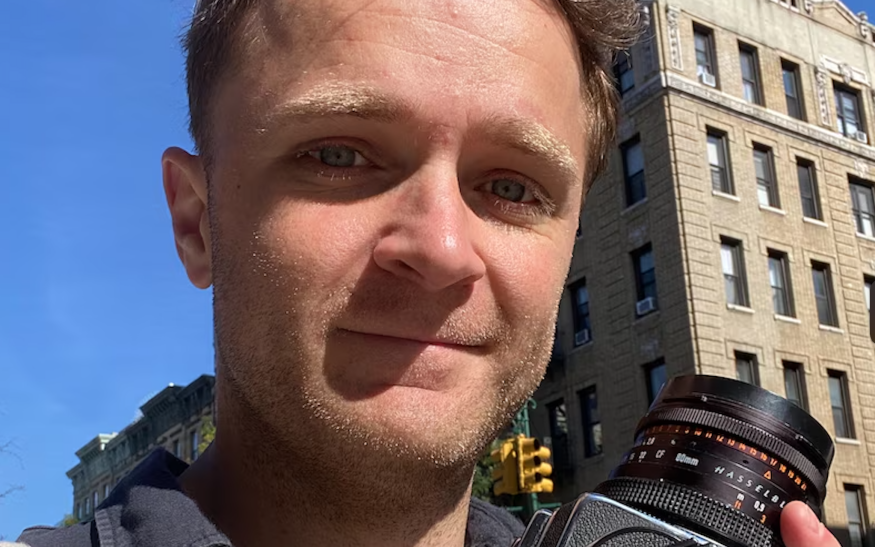
Alistair Kitchen believed deleting his social media content would be enough to avoid scrutiny when travelling to the US. He was wrong. On 12 June, the 33-year-old writer from Victoria, Australia, boarded a flight from Melbourne to New York to visit friends. But during a stopover at Los Angeles International Airport (LAX), he was pulled aside by US Customs and Border Protection (CBP) and never made it to his destination.
What followed was a gruelling 12-hour interrogation that ended with Kitchen being deported back to Australia. Since then, he has claimed the decision was politically motivated, linked to his pro-Palestinian writings and coverage of protests at Columbia University.
Interrogated Over Political Views
Kitchen said CBP officers were waiting for him at the gate. He was questioned about his views on the Israel-Gaza conflict, his stance on Hamas, and what he thought of recent student protests. They even asked how he would resolve the war.
'I was clearly targeted for political reasons,' he said. 'They knew about my Substack posts and interrogated me about them once I arrived.'
Fearing issues due to previous reports of similar detainments, Kitchen admitted he had deleted online content before travelling, including posts supporting Palestinian protests. However, he believes CBP had already linked those posts to his Electronic System for Travel Authorisation (ESTA).
'Clearly, they had technology in their system which linked those posts to my ESTA... a long time before I took them down.'
Drug Use Allegation Cited in Deportation
Kitchen handed over his phone, hoping transparency would work in his favour. Instead, it contributed to his deportation. The Department of Homeland Security (DHS) later stated Kitchen was denied entry for providing false information on his ESTA form, particularly in response to a question about past drug use.
He admitted to buying marijuana in New York—where it is legal—and to using drugs in other countries, but had answered 'no' to drug use on his application. CBP cited this as grounds for denying entry, despite no drugs being found in his possession.
'I was too trusting,' Kitchen later posted on Instagram. 'I should have just accepted deportation. Giving them my phone made things worse.'
Political Activism or Justified Denial?
Kitchen, who studied Creative Writing at Columbia University from 2022 to 2024, had previously covered the controversial arrest of Mahmoud Khalil, a prominent pro-Palestine activist. In one blog post, he described Khalil's arrest as being made 'on utterly specious grounds by a neo-fascist state'.
He maintains that his political commentary was the true reason behind his deportation, not the alleged ESTA violation. 'There's certainly not proof of me doing drugs on my phone,' he said. 'It was about my politics.'
CBP, however, strongly denies these claims. A DHS spokesperson said: 'The individual in question was denied entry because he gave false information on his ESTA regarding drug use. Political views had no bearing on the decision.'
The Case of Mahmoud Khalil
Kitchen's deportation comes just days after the release of Mahmoud Khalil, whose arrest sparked national protests and renewed concerns about immigration and free speech under the Trump administration. Khalil, a Syrian-born US resident, led the Columbia University Apartheid Divest (CUAD) group and was arrested in March over alleged Hamas sympathies. He was held for three months before being released by a federal judge on 20 June.
His imprisonment—during which he was denied access to his newborn child—drew condemnation from civil rights groups and students across the US. Khalil has vowed to continue his activism.
Chilling Effect on Foreign Activists
Kitchen's experience raises questions about whether foreign nationals, especially those with a public voice, are being scrutinised for their political beliefs. He warned others to be cautious: 'By the time a foreigner cleans his social media before a trip to the US, it may already be too late.'
In an era of heightened political sensitivity, Kitchen's story underscores the risks of being openly critical of US foreign policy—especially when crossing its borders.
Originally published on IBTimes UK
This article is copyrighted by IBTimes.co.uk, the business news leader



